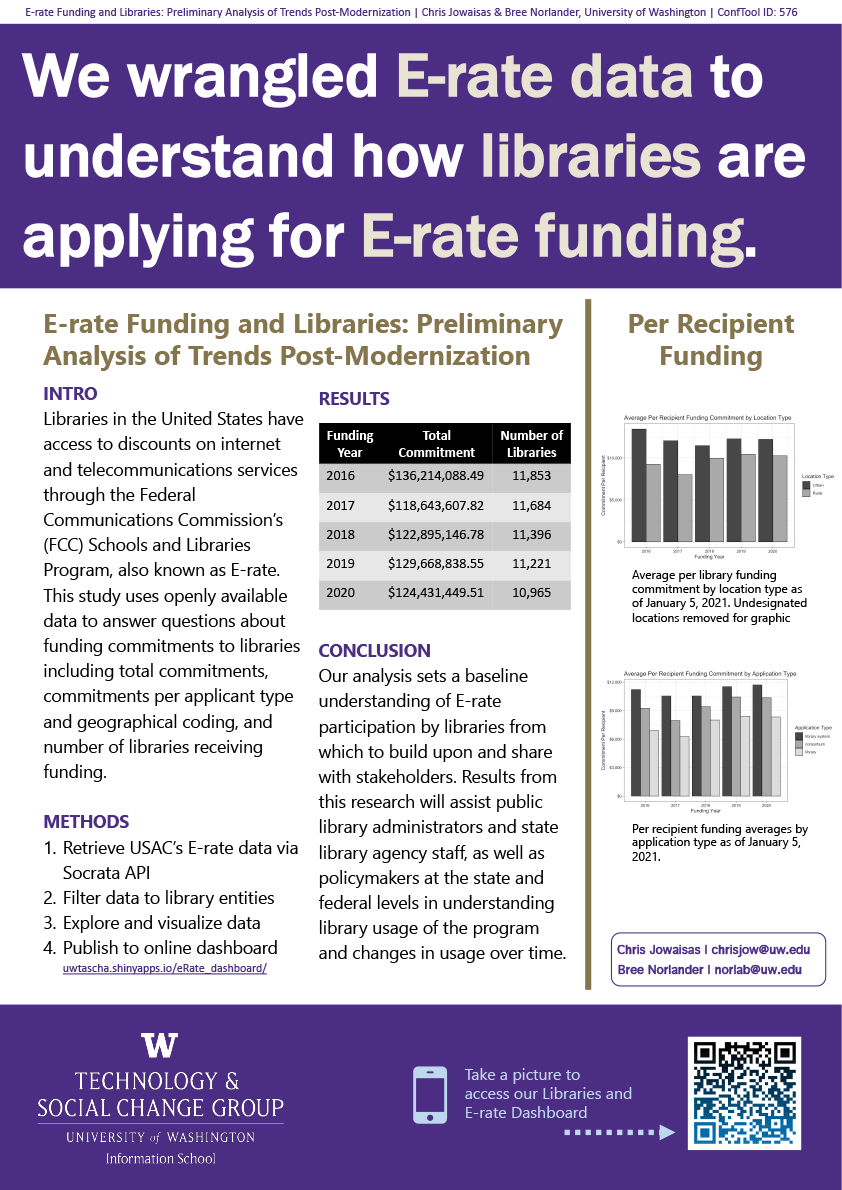
E-rate Funding and Libraries: Preliminary Analysis of Trends Post-Modernization
Libraries in the United States have access to discounts on internet and telecommunications services through the Federal Communications Commission’s (FCC) Schools and Libraries Program, also known as E-rate. While the academic literature on E-rate funding is sparse, especially when it comes to analysis of library participation, it does indicate that libraries have benefited from the program. Since 2016, E-rate data has been provided openly by the Universal Services Administrative Company. We use the available data to answer questions about funding commitments to libraries including total commitments, commitments per applicant type and geographical coding, and number of unique entities. We also discuss potential future research questions related to the data, both alone and in conjunction with other available open data.
Chris Jowaisas
Bree Norlander
Projects in Library & Information Science
- Fines and Fees in Public Libraries
- Data Challenges for Libraries in Africa
- The Effects of Suggested Tags and Autocomplete Features on Social Tagging Behaviors
- Studying Subject Ontogeny at Scale in a Polyhierarchical Indexing Language
- E-rate Funding and Libraries: Preliminary Analysis of Trends Post-Modernization
- How Music Fans Shape Commercial Music Services: A Case Study of BTS and ARMY
- FlashSciTalks: Carole Palmer
- E-rate Funding and Libraries: Preliminary Analysis of Trends Post-Modernization
- Public Libraries and Open Government Data: Partnerships for Progress
- Cross-disciplinary data practices in earth system science: Aligning services with reuse and reproducibility priorities
